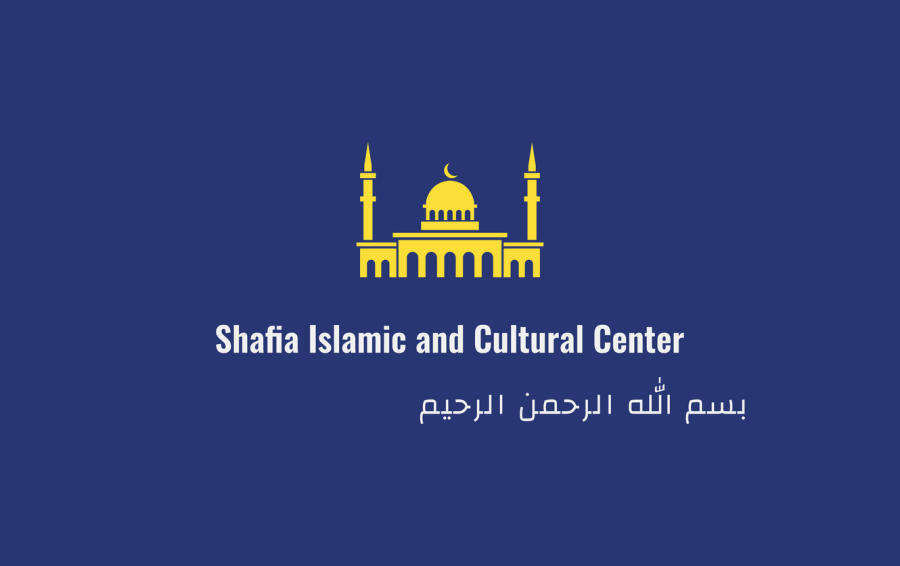Shafia Islamic and Cultural Centre

CONTACT
HOURS
ETIQUETTE
Phone:
President and Imam Hassan Ali, (515) 779-0375
Vice President and Imam Abdi Maalin, (515) 505-9112
Email:
Imam Ahmed Moalim, jamal7621@hotmail.com
Imam Hussein Adbi, xusseem@hotmail.com
To arrange for a visit, please contact one of the Imams
An Imam, Muezzin, and a small ( typically male ) group of members of the congregation come to the Shafia Mosque five times a day for the daily prayers ( dawn, noon, afternoon, sunset, and night )
Jumah Prayer: Friday 12:30 pm (winter months); 1:30 pm (during daylight savings time)
The entire community attends the various muslim holidays, including the daily iftar meals and prayers during Ramadan, Eid-Al-Fitr, Eid-Al-Adha, and Mawlid
To respect Somali and Muslim traditions:
MEN should: Enter through North side ( rear of building), remove shoes, dress modestly, and cover legs to ankles
WOMEN should: Enter through South Side (front of the building), dress modestly, cover head/hair, cover arms to wrists, and cover legs to ankles
Also, everyone should please refrain from touching members of the opposite sex while inside of the Mosque.
Student Testimonial
By: Reys Adem
The Shafia Islamic and Cultural Centre in Des Moines traces its origins back to Somalia, where many of its congregants lived before fleeing the country due to the Somali Civil War that began in 1991. Displaced by the conflict, they sought refuge first in Kenya and eventually resettled in the United States, with a significant portion settling in Des Moines. The community’s history is marked by displacement, resilience, and the enduring trauma of war, which continues to shape their identity and experiences.
Sufism is a mystical form of Islam, a school of practice that emphasizes the inward search for God and shuns materialism. The establishment of the Shafia Mosque as a Sufi center reflects the desire of its founders to create a space where they can practice their faith in a manner aligned with Sufi traditions while also honoring their Somali refugee identity.
The core practices and services at the Shafia Islamic and Cultural Centre revolve around daily prayers, which are conducted five times a day in the mosque’s prayer hall. On Fridays, congregants gather for the weekly congregational prayer, Jummah, which includes a translated Somali sermon, an original Arabic sermon (khutbah), and communal prayer led by one of the mosque’s five volunteer imams. Additionally, the mosque hosts religious and cultural classes for youth on weekends, aiming to impart knowledge about Islam and Somali culture to the younger generation. Special occasions such as Ramadan, Eid-al-Fitr, Eid-al-Adha, and Mawlid are celebrated with fervor, drawing large crowds to the mosque. Mawlid al-Nabi, Arabic for the “birthday of the prophet”, marks the anniversary of the Prophet Muhammad’s birth. Some Muslims commemorate the event because of his significance in Islam.
One of the distinctive features of the Shafia Islamic and Cultural Centre is its emphasis on Sufism as a guiding principle of faith and practice. The mosque serves as a spiritual and cultural hub for Somali Sufi Muslims in Des Moines, providing a space where they can connect with their religious heritage and express their identity as both Somali refugees and followers of Sufi Islam. The mosque’s physical transformation from a former church into a mosque reflects the community’s efforts to adapt and create a welcoming environment tailored to their needs and beliefs. The leadership of individuals like President and Senior Imam Hassan Ali, Vice President Abdi Maalin, and other imams underscores the community’s commitment to serving its members and preserving Somali, Sufi traditions in Des Moines.
By Runal A. Patel (2023)
Ask nearly any congregant of the Shafia Islamic and Cultural Centre and they’ll tell you how they grew up in Somalia before having to flee the Somali Civil War first to Kenya and eventually to the United States. And if they don’t, then they’ll recount how their parents did. The Somali Civil War and the trauma surrounding it remains fresh in the minds of the Shafia people, many of whom lived large parts of their lives as refugees.
The Somali Civil War began in 1991 as opposition groups attempted to overthrow the Barre dictatorship in Somalia. As the fighting ravaged on, villages and cities were destroyed in the crossfire. Nearly all the Shafia congregants lived in these destroyed areas. As government or opposition forces marched into their towns, many Shafia congregants fled southwest into Kenya. There, most of them lived in the Dadaab Refugee Complex for many years. Then in the 2000s, many of the Shafia congregants were resettled to the United States. Even now, the Somali community of Des Moines continues to grow, as some of the Shafia congregants who were originally resettled in other Midwestern cities, are now moving to Des Moines.
Around 2011, Somali Muslims in Des Moines began attending the Muslim Community Organization mosque (aka, Masjid an-Noor) on 42nd Street. Then in 2014, a group of Sufi Muslims split off from the 42nd Street mosque and founded the Shafia Islamic and Cultural Centre as a Sufi mosque for the Somali Muslim community of Des Moines. There, they hoped they could build a community around Sufism (mystical Islam) and their Somali refugee identity. The building the Shafia mosque now occupies was once the New Hope Church of God in Christ but has since been transformed into a mosque. The main floor of the building became the prayer hall, with new carpeting, walls, and a separate curtained off section for women. The building’s landing areas have been converted to contain sinks for congregants to perform ablutions (wudu) before prayer. The prayer hall itself is furnished with a pulpit for the imam to give his sermon (khutbah), a bookshelf of Qurans, and intricate Islamic tapestries at the back of the room. Notabley, the pulpit (minbar) resides in the corner of the building, next to the mihrab, which points the way to Mecca. The entire prayer hall is therefore arranged on a diagonal, with lines taped to the floor that orient the community towards Mecca for the daily prayers.
At any of the five daily prayers (salat), you can find a small gathering of men, women, or children praying at the mosque. Most days of the week, the Shafia mosque is empty with only a few in attendance, since many Shafia members pray on their own, as their work schedules allow. However, on Fridays, far more adherents gather in prayer for the weekly congregational prayer, Jummah. During Jummah, one of Shafia’s five volunteer imams lead the congregation in a translated Somali sermon, an original Arabic sermon (khutbah), and finally prayer. The mosque is most full during Ramadan (the Islamic month-long fast), Eid-al-Fitr (feast that breaks Ramadan), Eid-al-Adha (feast after hajj), and Mawlid (the Prophet’s birthday). During these occasions, the mosque is often bursting at its seams with congregants.
The community is led by a variety of men in spiritual and non-spiritual leadership positions. Hassan Ali is the president and senior imam of the community. Abdi Maalin serves as the vice president of the mosque, an imam, and a teacher of the mosque’s religious and cultural classes for youth on the weekends. The remaining imams of the mosque are Ahmed Moalim, Hussein Abdi, and a gentleman named Aden. Together, these men work to serve their families and the other Somali families of the community in creating a Somali, Sufi space in Des Moines, by and for their refugee experience.

